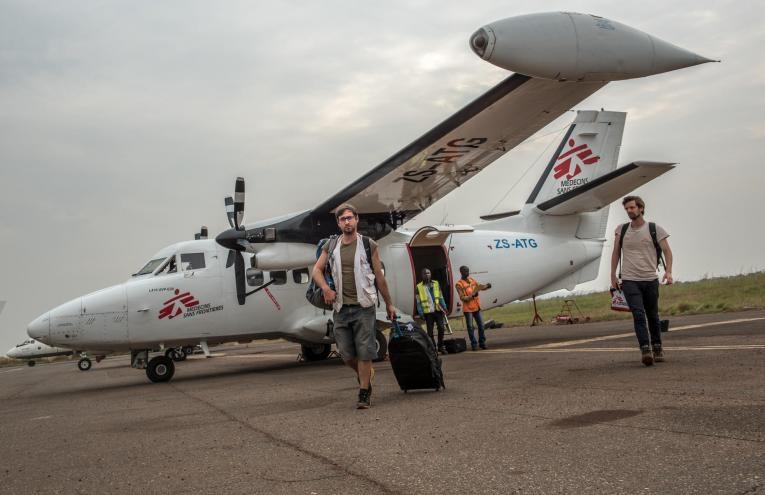PREPARATION FOR FIRST DEPARTURE

If you join MSF, you will be asked to attend a "Welcome to MSF" session. The first chance to get to know the association and to start understanding its culture and how it works. It is also an opportunity to meet and talk to experienced MSF personnel.
This preparation may be supplemented by more technical training that is sector-specific (logistical, administrative and medical).
Throughout your time with us, the association offers a personalised monitoring programme, overseen by a pool and careers manager, to aid in your development within the organisation and in doing so giving you the opportunity to explore different opportunities.
A diverse range of training courses may be offered to you, in order for you to develop your skills within the following areas:
-
technical (medical, logistics, finance, administration and human resources)
-
team leadership and management
-
project and operations management.
OVER 230 TRAINING SESSIONS
In 2023, the French section of Médecins Sans Frontières organised over 230 training sessions in Paris, Bordeaux, and its intervention locations: in total, over 3,000 French and international personnel members took part.
What does a Project Coordinator do?
John Johnson is a Project Coordinator for Médecins Sans Frontières. During an interview which took place in Maiduguri, north-eastern Nigeria, he looks back on his career and his role, which involves supporting the medical and logictical teams to ensure they can carry out their activities. John's first mission with MSF was as a nurse. As he continued with MSF, he worked in a variety of roles and took on more responsibility.
CAREER AFTER MSF
When a person decides it is time to move on from being a humanitarian aid worker in the field, MSF helps staff transition their experience into a career asset.
Staff are able to utilize the skills they develop during their experience with MSF in a variety of ways. The skills acquired in project management, team management, analysis and reporting, negotiation and using foreign languages on a daily basis are valued in a number of sectors.
PREPARING
to depart is also preparing to come back
Our partnership with Résonance humanitaire supports team members during this transition by providing access to a network of contacts: skills assessment, APEL requests and, in some cases, training.
Recruitment Process
Over 2,000 professionals work in our field locations every year.
Discover Our Recruitment ProcessDeparture Conditions
Our association is constantly recruiting people with suitable skills for its intervention programmes.
All information on the departure conditionsExpatriation process for MSF national staff
MSF national staff who are recruited in the field can apply to join the association’s international team.
More about it